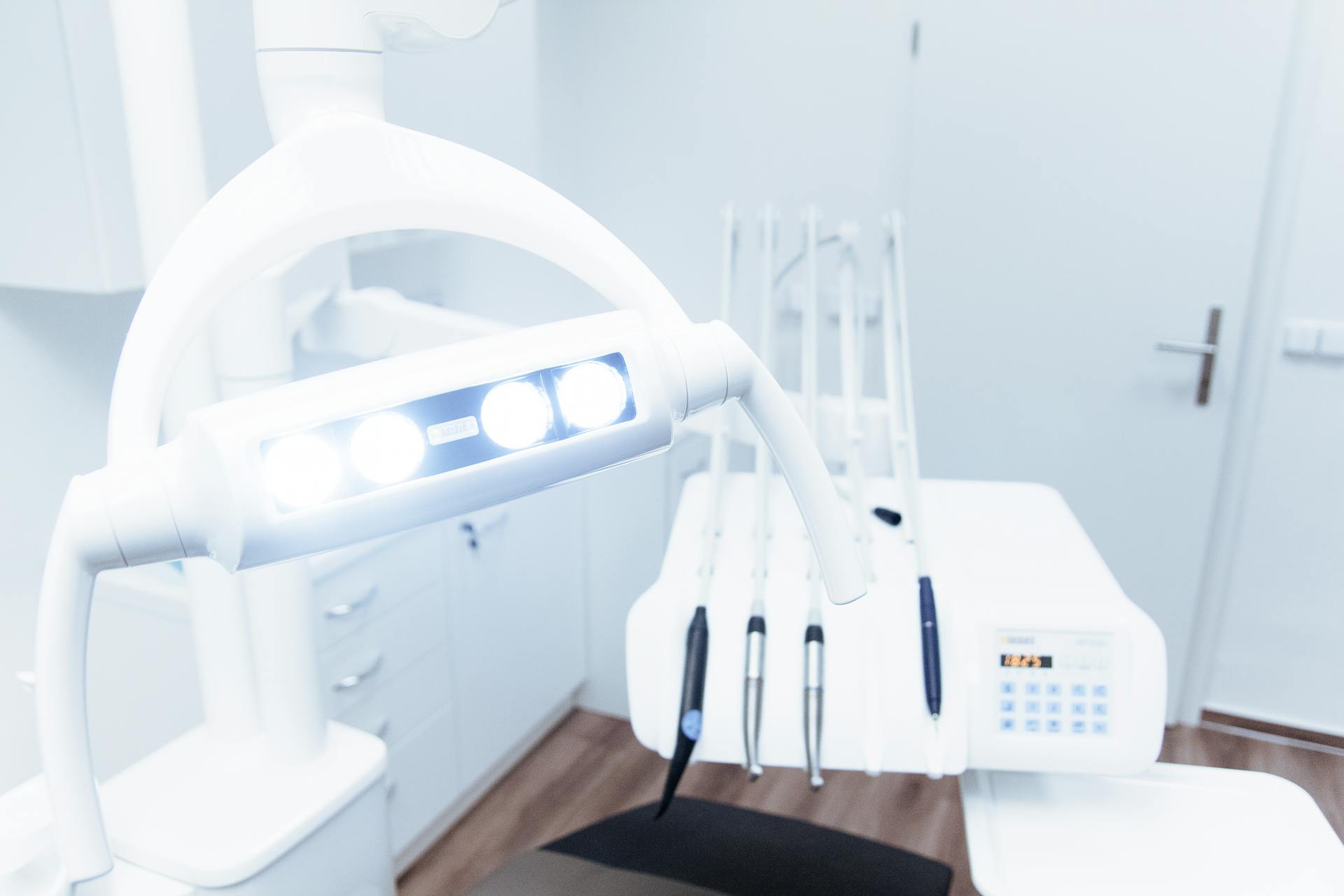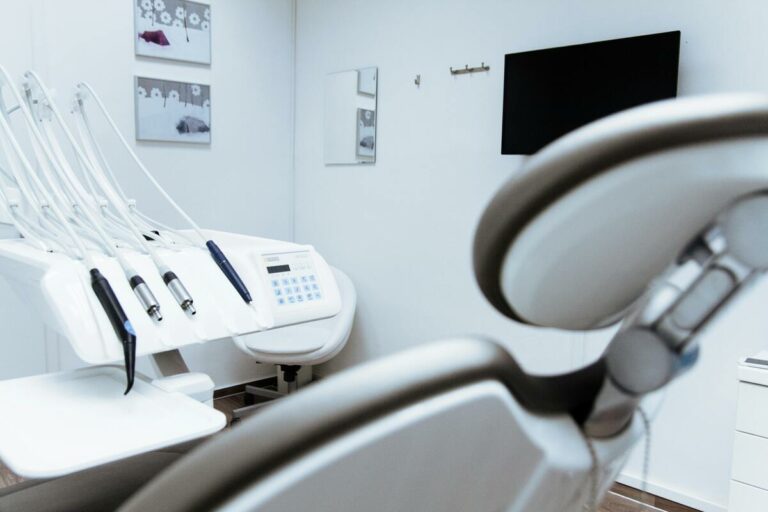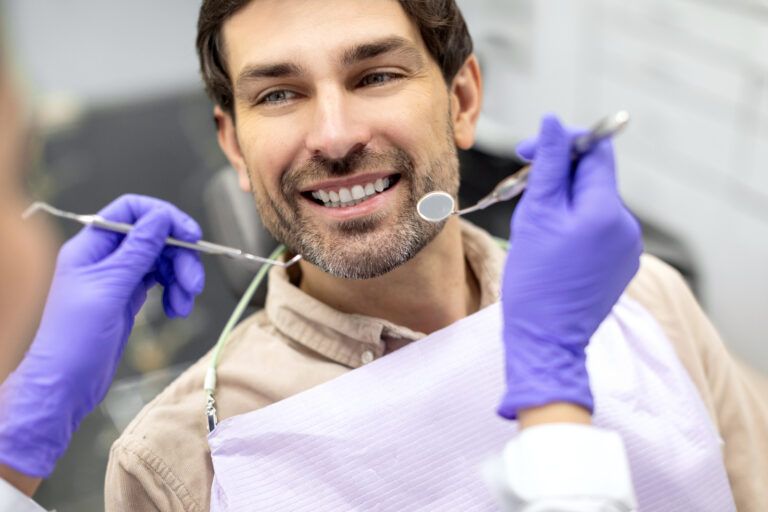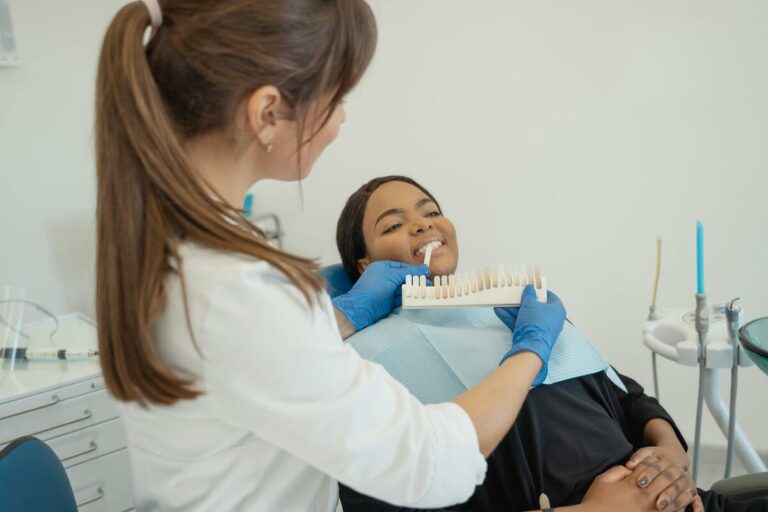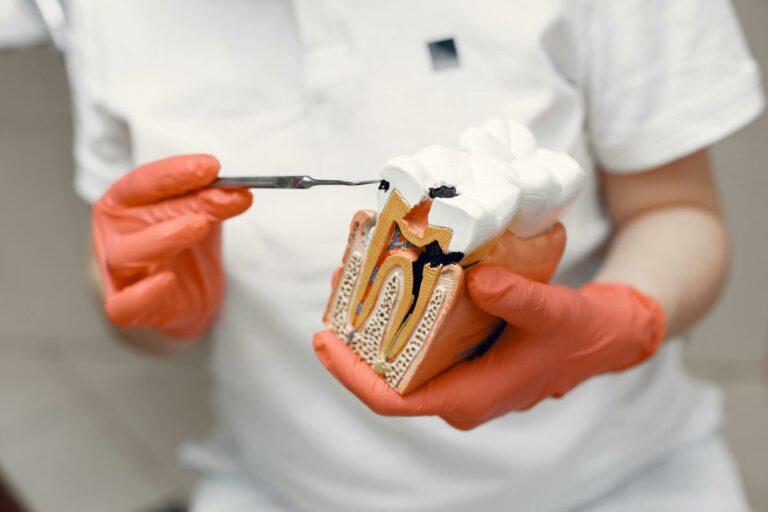7 Daily Habits That Keep Your Smile Bright and Healthy
Proper brushing is a cornerstone of effective oral hygiene. It involves mastering the right brushing techniques and choosing appropriate toothbrush types. The technique requires gentle, circular motions rather than harsh, back-and-forth scrubbing to protect gums and enamel. Brushing for at least two minutes guarantees all surfaces, including the chewing and inner sides of teeth, are adequately cleaned.
Selecting the right toothbrush type is equally vital. Soft-bristled brushes are recommended as they effectively clean without damaging teeth or gums. Electric toothbrushes can offer additional benefits, providing consistent motion and often equipped with timers to encourage brushing for the correct duration. By combining proper techniques with the right tools, individuals can greatly enhance their oral hygiene and maintain a bright, healthy smile.
Don’t Forget to Floss Daily
Flossing daily is essential for maintaining ideal oral health, as it reaches areas that a toothbrush cannot. Proper technique guarantees that plaque and food particles are effectively removed from between teeth, greatly reducing the risk of cavities and gum disease. By incorporating regular flossing into one’s routine, individuals can enhance their overall dental hygiene and contribute to a brighter smile.
Flossing Technique Matters
Mastering the art of flossing can greatly impact oral health and contribute to a brighter smile. The technique used during flossing is essential to effectively remove plaque and prevent gum disease. Flossing frequency is important; experts recommend daily flossing to maintain healthy gums and teeth. Understanding different flossing types can enhance the effectiveness of this routine. Traditional string floss is a common choice, but alternatives like dental picks, water flossers, and interdental brushes offer varied benefits, catering to individual preferences and dental needs. Proper technique involves gently sliding the floss between teeth and curving it into a “C” shape around each tooth, reaching below the gum line. This meticulous approach guarantees peak cleaning and keeps smiles looking their best.
Benefits of Regular Flossing
While often overlooked, regular flossing plays an essential role in maintaining oral health and achieving a bright smile. Flossing frequency is vital in preventing the buildup of plaque and tartar, which can lead to cavities and gum disease. Dentists recommend flossing at least once a day to guarantee that food particles and bacteria are effectively removed from between teeth, areas that a toothbrush cannot reach. Different floss types, such as waxed, unwaxed, dental tape, and flavored varieties, cater to individual needs and preferences, making it easier for people to incorporate flossing into their daily routine. By consistently practicing this habit, individuals can reduce the risk of oral health issues, enjoy fresher breath, and preserve the natural whiteness of their teeth.
Rinse With an Antimicrobial Mouthwash
A key component in maintaining oral health is the use of an antimicrobial mouthwash. This simple addition to one’s daily routine offers significant antimicrobial benefits, targeting bacteria that brushing and flossing might miss. The effectiveness of mouthwash lies in its ability to reach areas that are otherwise difficult to clean, such as between the teeth and along the gum line. By reducing plaque accumulation and preventing gingivitis, an antimicrobial mouthwash plays an essential role in a thorough oral hygiene regimen.
Regular use of mouthwash enhances the overall cleanliness of the mouth, leaving it feeling fresher and healthier. It is particularly beneficial in reducing bad breath and promoting a more pleasant oral environment. For best results, it should be used as directed by dental professionals.
Choose Teeth-Friendly Foods
A bright smile is often supported by a diet that prioritizes teeth-friendly foods. Reducing sugary snacks can help prevent tooth decay, while crunchy vegetables like carrots and celery aid in cleaning teeth naturally. Additionally, incorporating dairy products such as cheese and yogurt can strengthen tooth enamel due to their high calcium content.
Limit Sugary Snacks
Although sugary snacks may be tempting, reducing their consumption is essential for maintaining dental health. Frequent exposure to sugar can lead to tooth decay, as it fuels harmful bacteria in the mouth. Choosing sugar alternatives, such as fruits or nuts, can help satisfy cravings without detrimental effects. Additionally, the timing of snacking plays a significant role. Consuming sugary treats between meals increases the risk of cavities because saliva production, which helps neutralize acids, is reduced. Instead, if sweets are consumed, they should be part of a meal when saliva flow is higher. By being mindful of snack timing and opting for healthier choices, individuals can protect their teeth from the harmful consequences of sugar, contributing to a brighter, healthier smile.
Opt for Crunchy Vegetables
In addition to minimizing sugary snacks, incorporating crunchy vegetables into the diet can further enhance dental health. Crunchy snacks like carrots, celery, and cucumbers not only satisfy cravings but also offer significant vegetable benefits for oral hygiene. Their natural abrasiveness helps in gently scrubbing the teeth’s surfaces, effectively removing plaque and food particles. This mechanical cleaning action contributes to fresher breath and reduces the risk of cavities.
Moreover, crunchy vegetables stimulate saliva production, which is essential for maintaining a neutral pH level in the mouth and combating harmful bacteria. Rich in vitamins and minerals, these vegetables also support gum health. Choosing crunchy vegetables as snacks can be a simple yet effective strategy in maintaining a bright, healthy smile, while promoting overall oral wellness.
Include Dairy Products
Including dairy products in one’s diet can significantly benefit dental health due to their rich calcium and phosphate content. These essential minerals are vital for maintaining strong teeth and preventing decay, making dairy products excellent calcium sources. Regular consumption of milk, cheese, and yogurt provides the necessary nutrients that contribute to enamel strengthening and cavity prevention. Dairy benefits extend beyond just providing minerals; they also help neutralize acids in the mouth, reducing the risk of erosion and promoting a healthier oral environment. Additionally, cheese stimulates saliva production, which aids in rinsing away food particles and bacteria. As a result, incorporating a variety of dairy products into one’s diet can support long-term oral health, ensuring a bright and healthy smile.
Stay Hydrated for Oral Health
Proper hydration is essential for maintaining ideal oral health. Consistent water intake not only keeps the body hydrated but also offers significant benefits for oral hygiene. Drinking water helps wash away food particles and bacteria that could otherwise linger and potentially lead to tooth decay. Saliva production is another critical factor influenced by hydration. Adequate saliva helps neutralize acids in the mouth, providing a natural defense against cavities and gum disease. Additionally, staying hydrated can combat dry mouth, a condition that increases the risk of oral health issues. Regular consumption of water supports a clean and balanced oral environment. By prioritizing hydration, individuals can contribute positively to their dental health, ensuring a bright and healthy smile over time.
Limit Sugary and Acidic Beverages
Many people may not realize the impact sugary and acidic beverages have on dental health. These drinks can erode tooth enamel, leading to cavities and sensitivity over time. When making beverage choices, it is essential to be mindful of their sugar content and acidity levels. Opting for sugar alternatives can help minimize the damage caused by traditional sugary drinks. For instance, beverages sweetened with stevia or xylitol can offer a safer alternative while still satisfying a sweet tooth.
Moreover, reducing the frequency of consuming acidic drinks like sodas and citrus juices can protect enamel. Water, herbal teas, and milk are excellent beverage choices for maintaining a bright smile. By limiting the intake of harmful drinks, individuals can greatly enhance their dental health and preserve their radiant smiles.
Schedule Regular Dental Check-Ups
While maintaining good oral hygiene at home is essential, scheduling regular dental check-ups is equally important for a bright smile. Dental professionals provide deep cleanings and early detection of potential issues that may not be apparent during at-home care. Despite the benefits, some individuals experience dental anxiety, which can deter them from making necessary appointments. Fortunately, many dental practices offer solutions such as calming environments and sedation options to ease this anxiety. Additionally, utilizing appointment reminders via phone or email can help patients keep track of their visits, ensuring they don’t miss vital check-ups. Regular dental visits combined with effective at-home care form a thorough approach to maintaining oral health, preventing cavities, gum disease, and supporting an overall bright and healthy smile.
Frequently Asked Questions
How Does Smoking Affect the Brightness and Health of My Teeth?
Smoking negatively impacts teeth by causing tooth discoloration through nicotine stains. The tar and nicotine in cigarettes adhere to teeth, leading to a yellowish hue and compromised dental health, diminishing overall oral aesthetics and hygiene.
Can Stress Impact My Oral Health and Smile?
Stress can negatively impact oral health, potentially leading to teeth grinding and gum disease. Effective stress management, combined with maintaining proper oral hygiene, can help mitigate these effects, promoting a healthier smile and overall well-being.
What Role Does Tongue Cleaning Play in Oral Hygiene?
Tongue cleaning, particularly with a tongue scraper, plays an essential role in oral hygiene by reducing oral bacteria. This practice helps in preventing bad breath and maintaining overall oral health by removing debris from the tongue’s surface.
Are There Natural Remedies to Whiten Teeth Safely?
The current question explores natural tooth whitening remedies. Baking soda effectively removes surface stains due to its mild abrasiveness, while coconut oil pulling may reduce plaque and gingivitis, contributing to a whiter appearance over time.
How Does Grinding Teeth Affect My Smile?
Grinding teeth, also known as bruxism, can lead to tooth wear and jaw tension. This habit erodes enamel, making teeth appear shorter and more worn, potentially altering the smile’s appearance and causing discomfort in the jaw area.
